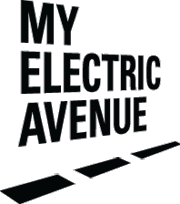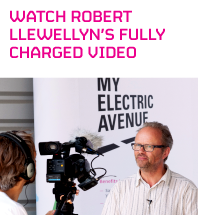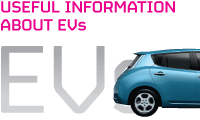FAQs
Can I take part if I’m not in a ‘cluster’?
If you are unable to, or would prefer not to take part in the ‘cluster’ trials, you may be able to take part in ‘social’ trials, which do not have any requirement to be part of a cluster group, and there are no geographical limitations. Standard rental agreements will apply for the leasing of an electric Nissan LEAF, and participants will have their driving and charging habits recorded. No additional equipment – either a charging point or the monitoring and control technology - will be installed as part of the social trials. At present there are subsidies for charging points from the government.
Both of the trials have a limited number of spaces available and will be offered subject to availability and eligibility.
Do I need to recruit other people in my street?
The project involves recruiting ‘clusters’ of at least 10 people on one local substation feeder. Therefore we are looking for interest from individuals who live in an area that is suitable for the recharging of EVs, who believe they can recruit a further nine (as a minimum) participants in their local area to take part in the trial.
How long does the trial last for?
The trial will last 18 months.
Is there a cost to take part?
There is a cost to take part in the cluster trial, which covers the subsidised rate for leasing a Nissan LEAF as part of the trial (£100 per month). You will also need to pay for insurance. The social trial is costed at standard rental rates.
Is there any inconvenience involved in taking part in the trials?
When the charging point is installed a short interruption to the household’s electricity supply will be required to connect the charging point to the electricity supply. A convenient time for this will be agreed with the household.
The trials involve technology to control when the EVs charge to prevent the network being overloaded. It is expected that this can be carried out whilst ensuring that the EV users still have charged EVs when they require them. However, the objective of the trial is to establish whether this is the case. The project may conclude that there are scenarios where the control cannot ensure the EVs are sufficiently charged or a more complex control is required.
There is therefore a risk that participants could experience inconvenience if the car is not charged sufficiently. However the number of times the charging point will be controlled is likely to be very low. Alternative transport arrangement will be made in case the technology fails..
The vehicle lease includes a breakdown service.
If a charger fails then this will be checked and if necessary replaced.
Is there any scope for changes to which properties the local substation feeder runs to?
Sometimes there may be the opportunity to move the normally ‘open’ points in a local electricity network to join feeders. There is no option to join areas up if they are totally separate from one another.
Once ‘clusters’ are identified, who will manage the project?
Once a cluster is established, EV management is with Fleetdrive Electric, charging failure/problems with EA Technology or SSEPD, and De Montfort University for surveys.
What are the eligibility criteria?
To take part in the ‘cluster trials’ people need to apply as part of a group and all applications are subject to eligibility and availability. Unfortunately, we cannot guarantee that all who apply will be able to take part, due to a number of factors such as:
– the type of local substation
– the arrangement of the feeder from the substation
– the suitability of the area for EV recharging
– the electrical condition of the property
– successful credit check
What communication resources will be provided to help us recruit people?
We will provide leaflets and possibly other resources such as display stands, as well as considering events for areas which have good potential to form a cluster.
What is the plan for induction/initial training for the EV drivers?
A ‘clinic’ or ‘EV event’ is likely to be held for a cluster, prior to everyone signing up, when a car will be taken along, and at least one after, at which point coaching can be provided.
What opportunities will there be as the project progresses for local publicity etc?
We would like to work with you to plan local and national publicity – with the explicit consent of all trial participants – press releases, inclusion in e-newsletters, radio etc.
What's involved in recruiting a cluster?
Individuals who apply to take part in the trial will be encouraged to take the lead in recruiting other neighbours to form a ‘cluster’ of at least ten properties.
1. Do you think you can get at least nine of your neighbours, or people who live in the streets close to you, to hire an EV as well? (We can tell you exactly which streets a cluster could be on and help with recruiting)
2. Are you and your fellow neighbours prepared to have your driving and charging habits and experiences recorded?
3. Do you think you and your fellow neighbours would be prepared to respond to questionnaires or surveys (either online, over the telephone, on paper, or face-to-face (to be agreed))?
4. Do you think you and your fellow neighbours would give some basic information about yourselves and your families? For example, how many cars are owned by the household, what journeys do you typically use the car for (daily commute, school run, weekly shop), how often you use the car for these journeys, in addition to basic socioeconomic information such as education (qualifications), income band (provided from a list), occupation, age, and household type (number of adults and children living in the household).
If there are sufficient numbers recruited to form a cluster, a more detailed information pack will then be sent to potential participants.
What’s involved in the trial?
Trial participants will lease an all-electric Nissan LEAF at a preferential monthly rate for 18 months, and they will have a charging point and the monitoring and control technology installed. The recharging of the vehicle will be monitored, and if required, controlled, by the installed technology. Trial participants will need to provide information about their experience on the trial as requested by the project, and be willing to take part in promoting the project.
Which geographical areas are included?
Phase 1 – months 0-6
For the first six months of the project (12 March 2013 – 11 September 2013) the trial will only take place in certain geographical locations: Scottish and Southern Energy Power Distribution Limited (SSEPD) network areas in Central Southern England and the North of Scotland (view map or check your postcode).
Phase 2 – months 4-6
From (12 June 2013 – 11 September 2013) the trial will be open to Northern Powergrid licence areas in North East England, Yorkshire and Northern Lincolnshire (view map or check your postcode).
Phase 3 – months 7-12
From (12 September 2013 – 11 March 2014), the trial has the option of broadening out to the rest of Britain if sufficient clusters aren’t gained in the first six months. This would be primarily focused on residential clusters, but business clusters would also be eligible to apply.













